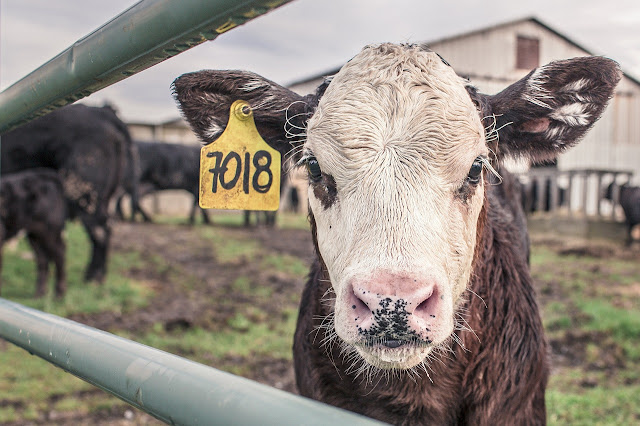"Understanding the remarkable qualities and vulnerabilities of animals inspires us to make compassionate choices. Embracing veganism allows us to contribute to a more ethical and compassionate world for all beings."
The Vegan Project Global
Cows: The Sentient Socialites Cows, known for their gentle demeanor, are highly social animals that form strong bonds within their herds. These remarkable creatures exhibit complex emotions and have been observed displaying close friendships. However, the animal agriculture industry subjects cows to harsh conditions. They are often confined to crowded spaces, separated from their calves, and subjected to painful procedures like dehorning and tail docking. Opting for a vegan lifestyle reduces the demand for dairy and beef products, thereby contributing to the improved welfare of cows.
Pigs: Intelligent and Emotionally Complex Pigs are intelligent animals that display remarkable cognitive abilities and emotional complexity. Research has shown that they possess levels of intelligence comparable to dogs and some primates. Unfortunately, industrial farming practices confine pigs to small spaces, depriving them of fresh air and the freedom to roam. By adopting a vegan diet, individuals can abstain from supporting intensive pig farming and promote better treatment for these sentient beings.
Chickens: Social Creatures with Hierarchical Structures Chickens, often underestimated in terms of intelligence, are highly social animals with complex communication systems and hierarchical structures within their flocks. However, factory farming subjects chickens to overcrowded conditions deny them outdoor access, and involves painful procedures like debeaking. By embracing a vegan lifestyle, individuals can reduce the demand for eggs and poultry, contributing to improved welfare for chickens.
Fish: Sentient Beings in Peril Contrary to popular belief, fish are sentient creatures capable of experiencing pain and fear. Overfishing, destructive fishing practices, and pollution pose significant threats to marine life. The consumption of seafood contributes to the demand for fishing, exacerbating these issues. Choosing a vegan diet helps reduce the demand for seafood, supporting sustainable fishing practices and the preservation of marine ecosystems.
Bees: Guardians of Pollination Bees play a vital role in the pollination process, essential for the reproduction of many plant species. Unfortunately, commercial beekeeping practices often exploit bees for honey production. By adopting a vegan lifestyle, individuals can opt for honey alternatives and support sustainable, bee-friendly practices. This promotes the well-being of bees, crucial pollinators for our ecosystem.
Elephants: Intelligent and Exploited Elephants are highly intelligent and socially complex creatures known for their close-knit family bonds. Tragically, they are frequently exploited in the entertainment industry, such as circuses and tourist attractions. Additionally, the ivory trade poses a severe threat to their survival. Being vegan means refraining from supporting elephant exploitation, such as purchasing ivory ornaments or participating in elephant rides, while also supporting conservation efforts for their protection.
Conclusion: Understanding the extraordinary qualities and vulnerabilities of animals enables us to recognize the importance of making compassionate choices. Adopting a vegan lifestyle empowers us to contribute to the reduction of animal suffering and the promotion of a more ethical and compassionate world. By embracing veganism, we can actively participate in creating a future where animals are treated with the respect and kindness they deserve.
Resources:
- The Vegan Society: https://www.vegansociety.com/
- Mercy for Animals: https://mercyforanimals.org/
- PETA: https://www.peta.org/
- Challenge 22: https://challenge22.com/

Comments
Post a Comment
We welcome your input!